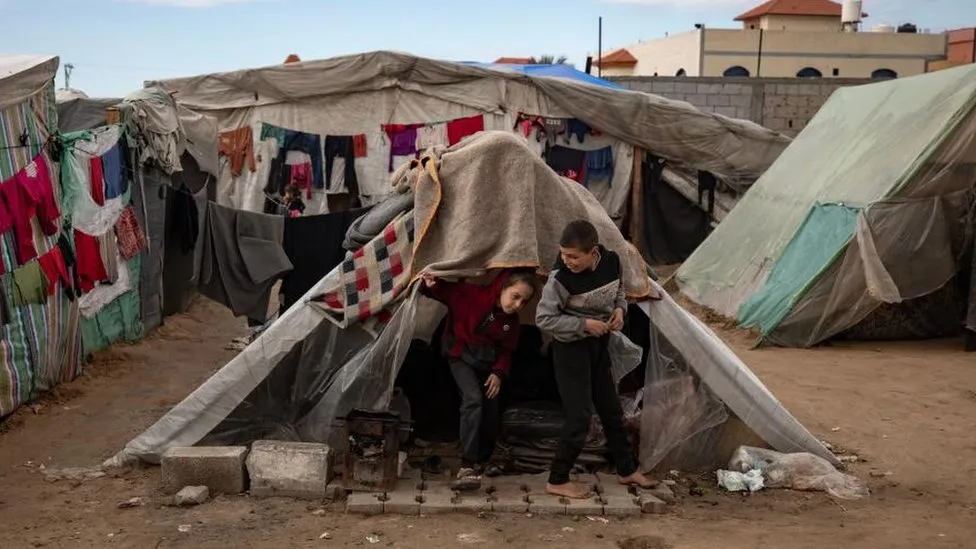ISRAEL’s sudden threat to unleash its controversial ground operation in the southern Gazan town of Rafah unless all hostages are freed by 10 March has ratcheted up the pressure on the tortuous talks to secure an elusive agreement.
Even before Benny Gantz, a leading member of Israel’s war cabinet, threw down the gauntlet, Arab leaders were already anxiously focused on this start of the Islamic holy month – a time of communal fasting and prayer which can intensify a prevailing mood.
“Ramadan is ahead of us and if the situation in Rafah evolves, it will be a very, very dangerous time in the region,” warned Qatar’s Prime Minister Sheikh Mohammed bin Abdulrahman Al Thani at the annual Munich Security Conference over the weekend.
The palpable apprehension by an Arab leader directly involved in the protracted negotiations to swap Israeli hostages for Palestinian prisoners, and reach a truce in this grievous war, is being forcefully echoed by other Arab officials.
Their principal preoccupation is the highly combustible situation in the occupied West Bank, where tensions and violence have been steadily escalating.
“The West Bank is a powder keg waiting to explode and, if it does, it is game over,” stressed Jordan’s Foreign Minister and Deputy Prime Minister Ayman Safadi in a BBC interview in Munich on Sunday, before Israel seemed to set a deadline.
Conversations in Munich with several Arab and western officials with knowledge of these high-stake talks underscored a bleak prognosis. They all spoke off the record because of the sensitive nature of the indirect negotiations between Israel and Hamas involving US, Egyptian and Israeli spy chiefs, as well as Qatar.
“The gaps are still wide,” regretted one source. Another described the process as “stuck”.
The main stumbling blocks are said to include Hamas’s high price for the release of the hostages. A figure of 1,500 Palestinian prisoners for five female Israeli soldiers was cited by one source as one example.
In the first swap in November during a one-week truce, 105 hostages – mainly elderly women and young children – were swapped for 240 Palestinians, many of them teenagers, detained in Israeli prisons. About 130 hostages are said to be still in captivity in Gaza, although a small number are believed to have been killed in this war.
It was always known that Hamas would hike the price to release Israeli soldiers, who they see as one of its most valuable bargaining chips. Sources say negotiators have been trying to bring down these numbers by introducing other incentives such as increased deliveries of desperately needed humanitarian aid.
Hamas’s broader demand for an end to this war and the pull-out of all Israeli troops are utterly unacceptable to Israel. Prime Minister Benjamin Netanyahu has rejected Hamas’s proposed plan as “delusional”.







